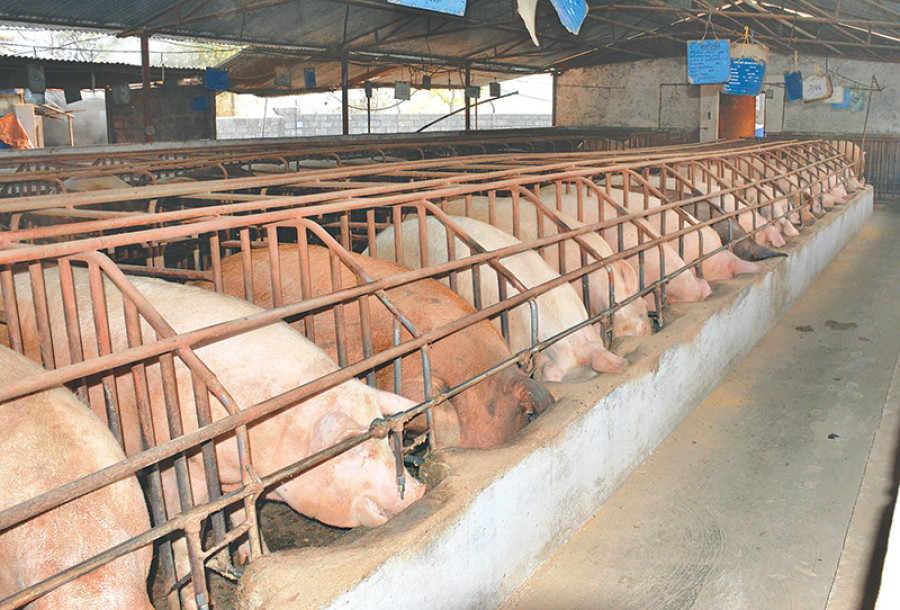Money
Demand for pork meat surges 30pc in Pokhara
Demand for pork meat has gone up by over 30 percent in the Western Nepali city of Pokhara, as cultural barriers related to consumption of swine are rapidly being dismantled.
Bina Thapa
Demand for pork meat has gone up by over 30 percent in the Western Nepali city of Pokhara, as cultural barriers related to consumption of swine are rapidly being dismantled.
The lake city currently produces around 3,000 kg of pork meat per day. But this supply is not enough, as per day demand of pork has crossed over 4,000 kg, according to Chyam Bahadur Thapa, promoter of Ritthepatan-based Pokhara Livestock. This indicates local production is not enough to cater to the growing demand.
One of the main reasons for the rise in pork demand is removal of cultural barriers that prevented people from consuming the meat.
Previously, many used to frown upon those who ate pork. This was largely because the animal was considered unclean, as it grew in unhygienic surroundings littered with filth. This discouraged people to rear pigs, Thapa said. Bhoj Chettri, owner of Himalaya Agro Farm House, Tallo Gagan, became a victim of this cultural barrier when he first started rearing pigs.
“People used to talk behind my back for embracing this profession,” Chettri said. “But those who were against me now appreciate my work. Some of them have even reached out to me seeking advice on ways to run a pig farm.”
Most of the people who are growing pigs in Pokhara and the vicinity are overseas migrant workers who have returned home for good. “If money that is spent to look for jobs abroad is invested in pig farms, people can lead a decent life here in Nepal,” Chettri said.
Consumption of meat, like pork, is going up in the country, as protein intake is continuously increasing due to rise in income level. Today, people of almost every ethnic background consume pork, which is pushing up demand for this meat product, according to Suresh Kumar Shrestha, a livestock specialist at Kaski District Livestock Services Office. Demand for this meat is particularly high in Phewa Lakeside, which is the hub for domestic and foreign tourists.
Considering the popularity of this meat, Pokhara even hosted three-day Pork Festival until Sunday to promote consumption of the product.
“Pokhara can soon become self-reliant in production of pork meat if the government can provide incentives for people engaged in this business,” said Padam Thapa Magar, promoter of Falepatan-based Evergreen Pig Farm. Kaski district currently has around 113 pig farms. These farms are rearing around 6,195 pigs. These farms are currently employing around 340 people.




 9.6°C Kathmandu
9.6°C Kathmandu.jpg)















